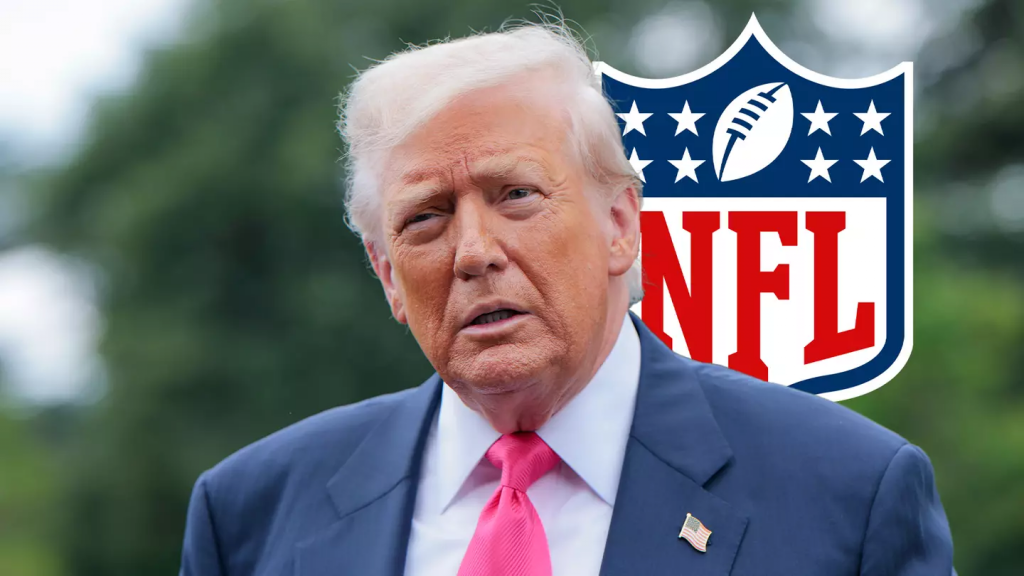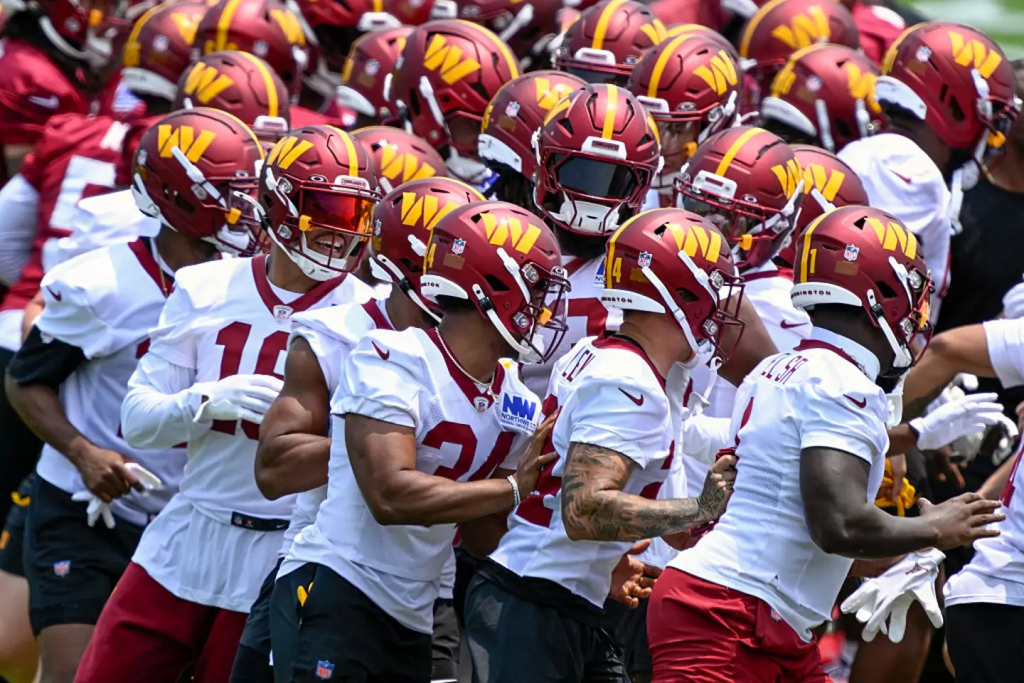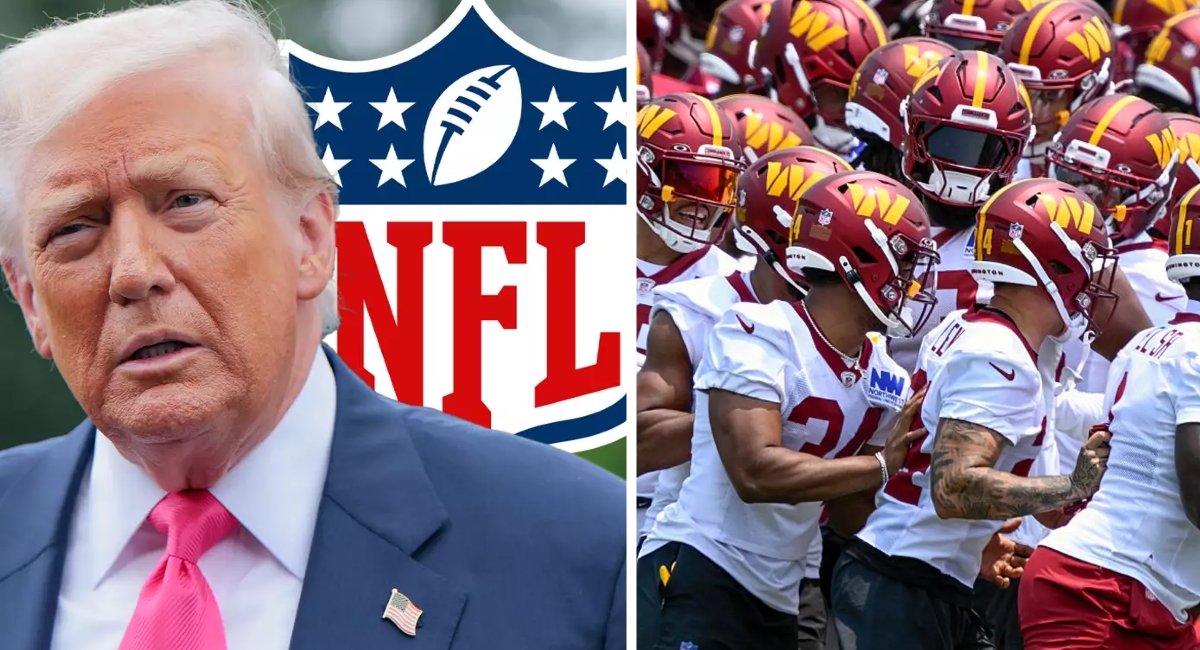In a surprising escalation, former President Donald Trump has warned that a massive stadium redevelopment could be derailed unless the Washington Commanders revert to their former “Redskins” name—a move he sees as restoring heritage and value. His demands came after the D.C. Council and team announced plans for a new $3.7 billion venue at RFK Stadium’s old site, triggering a storm of controversy on both cultural and political fronts. A detailed Reuters dispatch on his ultimatum outlines the implications.
Trump took to his platform to declare that unless the Commanders “IMMEDIATELY change” their moniker, he would refuse to back the stadium deal. He claimed that reverting would make the franchise “much more valuable,” and even urged MLB’s Cleveland Guardians to return to the “Indians” name. An explainer on his outspoken social media post reveals how he framed the demand as a matter of legacy and economics.

“I may put a restriction on them … I won’t make a deal for them to build a Stadium in Washington.”
The timing couldn’t be more charged: the land where the new arena would rise was transferred to D.C. earlier this year under President Biden, but the approval must still pass through the D.C. Council—a process now threatened by Trump’s intervention. A summary of the stadium’s legislative steps shows how his claim injects fresh uncertainty into the timeline.
Meanwhile, Commanders’ leader Josh Harris has stood firmly against renaming, saying the current name carries new meaning and unity. Similarly, the Guardians have dismissed Trump’s demands, pointing to their rebranding as part of a thoughtful shift. Coverage of both teams’ rebuttals emphasizes their distinct branding strategies.
Trump’s insistence forces a larger reckoning on how sports organizations use Indigenous imagery. He defended the “Redskins” label as cherished and demanded that owners “GET IT DONE!!!” But Indigenous groups have long criticized that name as derogatory, bringing renewed attention to cultural sensitivity in sports franchises. Community voices on the legacy debate underscore the emotional stakes involved.
“There’s nothing political here, it’s tradition and passion,” Trump wrote, defending the original team identity.
Even without presidential authority over the D.C. Council’s decisions, Trump’s threat carries political weight. Congress maintains budget control over the District, potentially enabling federal intervention. An in-depth look at legal leverage explains how national politics could sway local outcomes.
Republicans pushing the stadium deal, including House Oversight Chair James Comer, have stressed urgency in voting for the plan. Trump’s remarks sparked debate over whether the lawmaker community will side with team branding or broader infrastructure goals. A breakdown of political pressure points shows how differently the issue cuts across lines.
Cultural commentary has flooded social media, with some fans echoing Trump’s call for “heritage over cancel culture,” while Native activists denounced the idea as insensitive. The National Congress of American Indians and other advocates continue to oppose those team names, citing generational harm. Coverage of those community reactions highlights how divided opinions remain.
The proposed stadium isn’t just about football—it’s tied to a massive development package totaling over $4 billion, including retail, residential units, and infrastructure. Trump argues that the financial investment justifies branding changes, but critics counter that leveraging public deals for private identity is inappropriate. Economic impact analysis explains how the valuations were calculated.

Legal experts say Trump’s comment amounts to a political pressure play rather than a binding veto. But with federal oversight still possible—and a divided D.C. Council—the possibility of delay or disruption becomes more than theoretical. An assessment of political leverage outlines how far Trump’s influence could reach.
Thus far, both the Commanders and Cleveland Guardians have reiterated their intention to keep their current names, arguing it respects cultural evolution and avoids regressive symbolism. Yet Trump’s ultimatums are rattling many who believed these rebrands were settled matters. Statements reinforcing team decisions showcase how the backlash is being managed.
This showdown also raises broader questions: should external voices influence branding decisions tied to public assets? And what role do cultural movements play in sports identity? Trump’s threats illustrate the collision of business, politics, and cultural reckoning—forcing stakeholders to navigate a rapidly shifting landscape.






